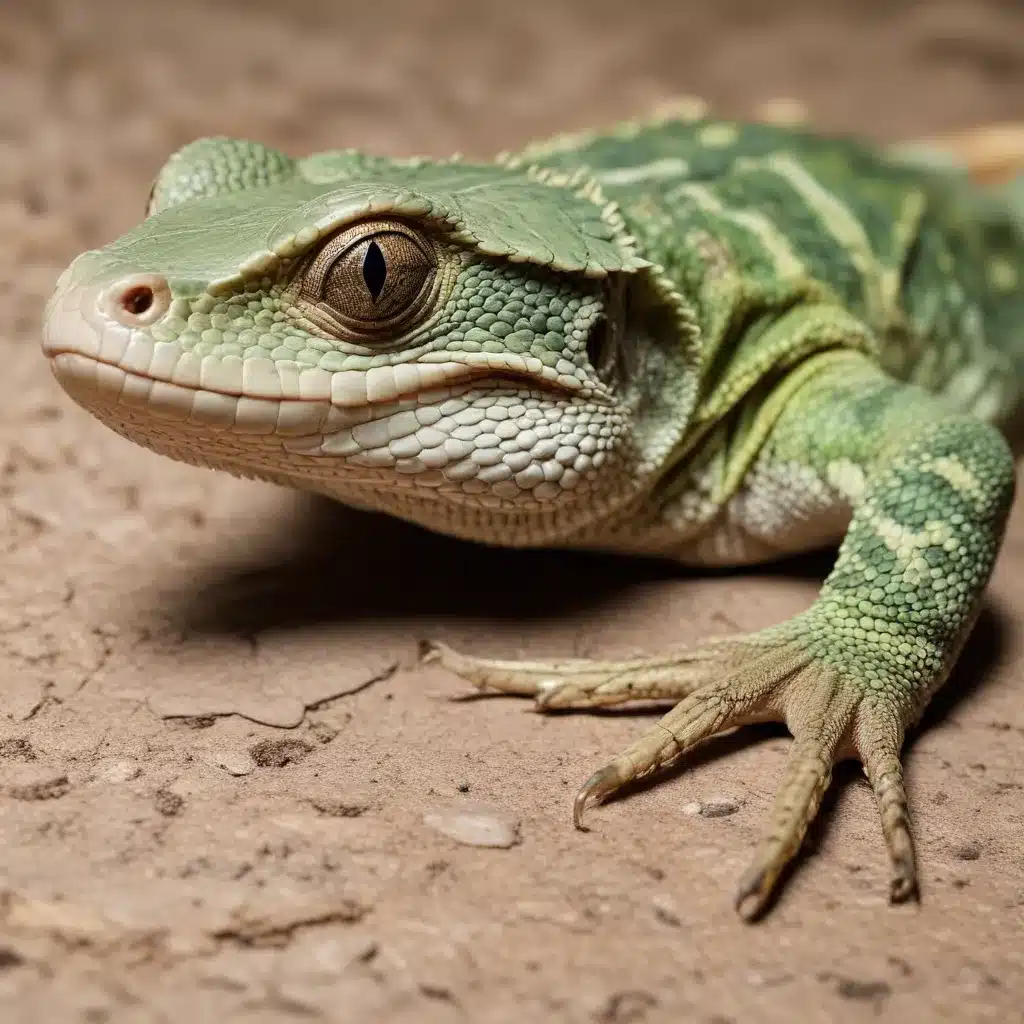
Reptile Genetics and Evolutionary Adaptations
Reptiles are remarkable creatures that have evolved a fascinating array of genetic adaptations, allowing them to thrive in diverse ecosystems. From the ability to regenerate tails to the production of potent venom, these cold-blooded animals possess a genetic blueprint that sets them apart from other species.
One of the most remarkable genetic traits of reptiles is their capacity for tail regeneration, a phenomenon known as autotomy. When threatened by predators, certain reptiles can detach their tails and subsequently grow a new one in its place. This adaptation not only helps them escape danger but also ensures their survival in harsh environments where predation is a constant threat.
Another genetic marvel of reptiles is their ability to produce venom, a complex cocktail of proteins and enzymes. Snakes and lizards have evolved this trait for various purposes, from immobilizing prey to defending against predators. The evolution of venom production in reptiles is a testament to the remarkable adaptability of these creatures.
Reptiles have also mastered the art of camouflage and mimicry, allowing them to blend seamlessly into their surroundings or imitate the appearance and behavior of more dangerous species. These survival strategies are a result of their genetic adaptations, showcasing the remarkable resilience and adaptability of reptiles.
Reptile Care and Habitat Requirements
Responsible reptile ownership requires a deep understanding of the specific care needs and habitat requirements for various species. Providing the right environment and meeting the nutritional and health needs of these animals is crucial for their well-being and longevity.
Exotic Reptiles for Sale offers a wealth of information on the care requirements for different reptile species. From temperature and lighting to substrate and enclosure size, each aspect of the habitat must be carefully considered to ensure the reptile’s optimal health and comfort.
Proper feeding is another essential aspect of reptile care. Depending on the species, reptiles may require a varied diet of live prey, fresh vegetation, or a combination of both. Researching the specific dietary needs and feeding schedules for each reptile is crucial to maintain their overall well-being.
Regular veterinary check-ups and preventative care are also vital for reptile owners. Identifying and addressing any health concerns promptly can help prolong the life of these fascinating creatures.
Reptile Breeding Techniques
Breeding reptiles requires a deep understanding of their reproductive cycles, gestation periods, and specific breeding behaviors. Successful reptile breeding not only ensures the continuation of captive populations but also contributes to responsible conservation efforts.
One of the key aspects of reptile breeding is monitoring the environmental conditions, such as temperature and humidity, to mimic the natural breeding triggers for each species. Providing the right cues for courtship, mating, and egg-laying can significantly improve the chances of successful breeding.
Incubation and hatchling care are also critical components of reptile breeding. Maintaining the appropriate temperature, humidity, and substrate within the incubation environment is essential for the healthy development of the offspring.
Additionally, understanding the genetic traits and potential genetic disorders associated with different reptile morphs or color variations is crucial when planning breeding programs. Responsible breeders prioritize the long-term health and well-being of the reptiles over the pursuit of rare or unique phenotypes.
Legal Considerations for Reptile Ownership
Navigating the legal landscape of reptile ownership is a crucial aspect of responsible pet ownership. Regulations and requirements can vary significantly depending on the species, location, and intended use of the reptiles.
In many regions, certain reptile species may be classified as endangered, invasive, or potentially dangerous, requiring specific permits or licenses for ownership and trade. It is essential for prospective reptile owners to research and comply with all relevant laws and regulations to avoid legal complications.
Permits may be required for the possession, breeding, or commercial sale of specific reptile species. These permits often involve an application process, fees, and inspections to ensure the proper care and containment of the animals.
Zoning restrictions can also play a significant role in where reptiles can be kept. Some areas may have specific rules regarding the size and type of enclosures allowed, as well as restrictions on keeping reptiles in residential neighborhoods. Understanding and adhering to these regulations is crucial to avoid conflicts with local authorities.
Responsible Reptile Conservation Efforts
The silent crisis of reptile conservation is a pressing issue that demands the attention and action of reptile enthusiasts, breeders, and pet owners. Habitat destruction, pollution, and illegal trade have all contributed to the decline of many reptile species worldwide.
Citizen science initiatives, such as reptile monitoring programs, allow individuals to contribute to research and conservation efforts by gathering valuable data on reptile populations and their habitats. By participating in these initiatives, reptile owners and enthusiasts can play a vital role in understanding the challenges faced by reptiles and developing effective strategies for their protection.
Education and awareness campaigns are also crucial in addressing the conservation crisis. Sharing knowledge about the importance of reptiles in ecosystems and the threats they face can inspire others to take action and support conservation efforts.
As reptile enthusiasts, it is our responsibility to not only provide exceptional care for our captive animals but also to advocate for the protection and preservation of wild reptile populations. By embracing our role as stewards of these remarkable creatures, we can contribute to a brighter future for reptiles and the environments they call home.
Conclusion
Navigating the world of reptile ownership requires a comprehensive understanding of their genetic marvels, care requirements, breeding techniques, and legal considerations. By prioritizing the well-being of these fascinating creatures and engaging in responsible conservation efforts, reptile enthusiasts can ensure the continued survival and appreciation of these remarkable scaled companions.
Whether you are a seasoned reptile owner or a newcomer to the hobby, the information presented in this article provides a solid foundation for making informed decisions and providing the best possible care for your scaly friends. Remember, responsible reptile ownership is not just a passion, but a commitment to the preservation of these incredible species and the ecosystems they inhabit.


